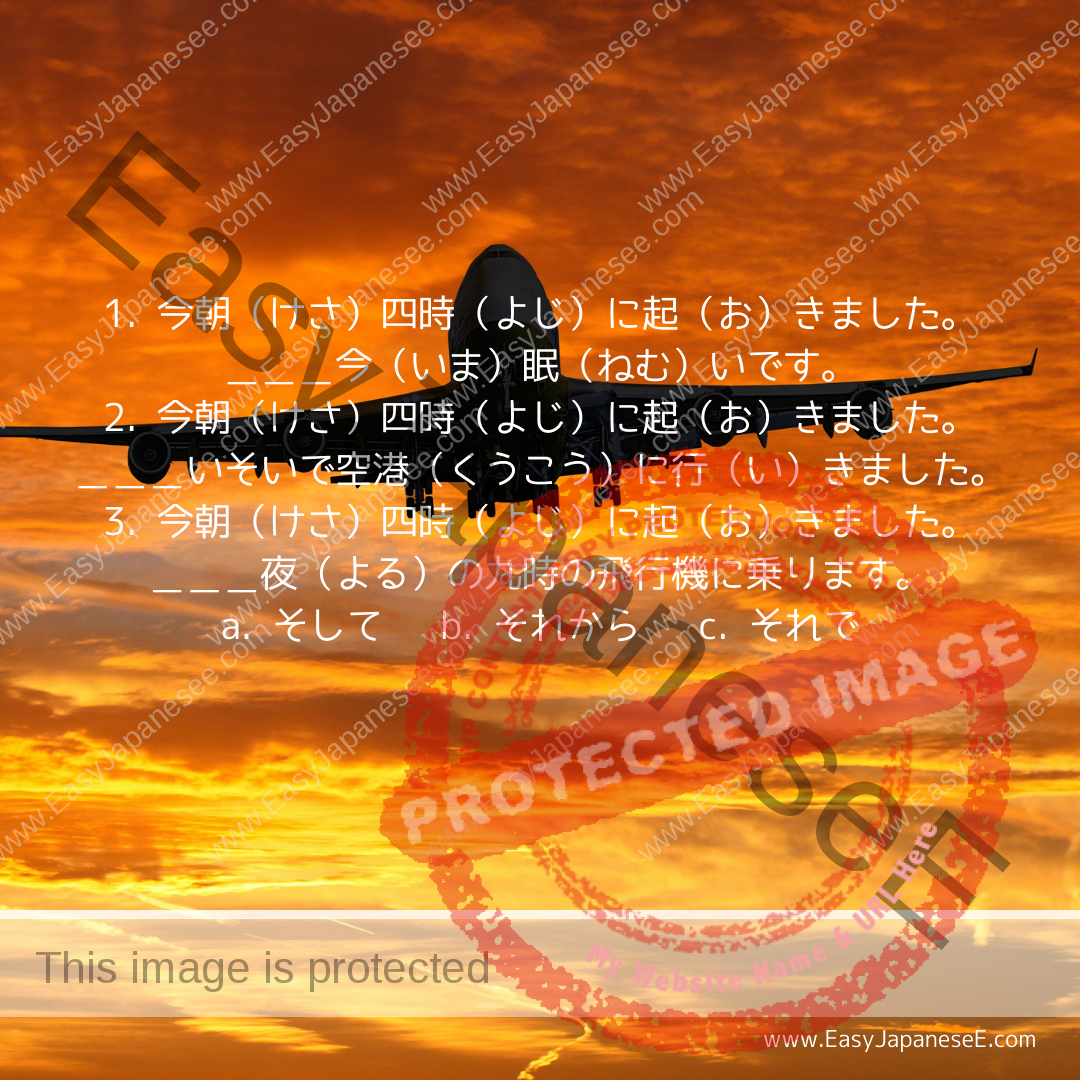そして, それから and それで all can be used at the beginning of a sentence and can mean “and” but the nuances are different.
- 今朝四時に起きました。___今眠いです。
- 今朝四時に起きました。___いそいで空港に行きました。
- 今朝四時に起きました。___夜の九時の飛行機に乗ります。
a. そして b. それから c. それで
If you are going to use each choice once only, the correct combination is 1-c, 2-b, 3-a
Every set of statements starts with 今朝四時に起きました。which means “I got up at 4 this morning.”
それで can be “therefore”
Set 1 continues with 今眠いです, which is “I’m sleepy now.” So the first part is the reason of the second part. それで meaning “so,” “therefore,” etc, is the best choice for that.
そして mean “and then” and shows the order of the events
Set 2 continues with いそいで空港に行きました, which means “I went to the airport in a hurry.” So this pair expresses 2 things happened one after the other. In this case, getting up at 4am first “and then” hurrying to the airport, for which both a. そして and b. それから are possible.
それから is also “and then” but used for an action that takes place immediately after the 1st.
Set 3 continues with 夜の九時の飛行機に乗ります, which means I will catch a 9 pm aeroplane. Similar to Set 2, this indicates 2 actions occurred one after the other but there must be something else happening between 4 am and 9 pm, and in that case, we cannot use b. それから as それから sounds like the second action started immediately after the first action is completed. So the only option left is a. そして for this one.
As for そして and それから, they both sometimes mean “on top of that” instead of “and then.”
先週は忙しかったです。レポートを書かなければなりませんでしたし、クリスマスパーティーが三つもありました。そして/それからクリスマスプレゼントの買い物もしました。
= Last week was busy. I had to write reports and there were 3 Christmas parties (to attend). On top of that, I did some Christmas shopping.
In the above example, we cannot be certain about the order of events. You cannot automatically assume that Christmas shopping was done after the other actions mentioned.
Conversation Responses
そして、それから、それで can also be used as あいづち (a response in a conversation to make the conversation go smoothly) but each of them have a slightly different tone from the others. The very rough interpretation can be:
- If you hear それから?(often repeated like それから、それから?), it is likely that the other person is very keen to know what happened next.
- If you here そして?, it is likely that the other person wants to know what happened at the end result of the event you are telling about.
- If you hear それで?, it is likely that the other person wants to know why you are telling that story.

